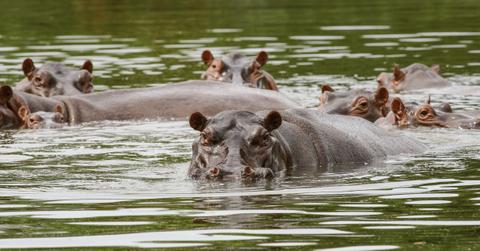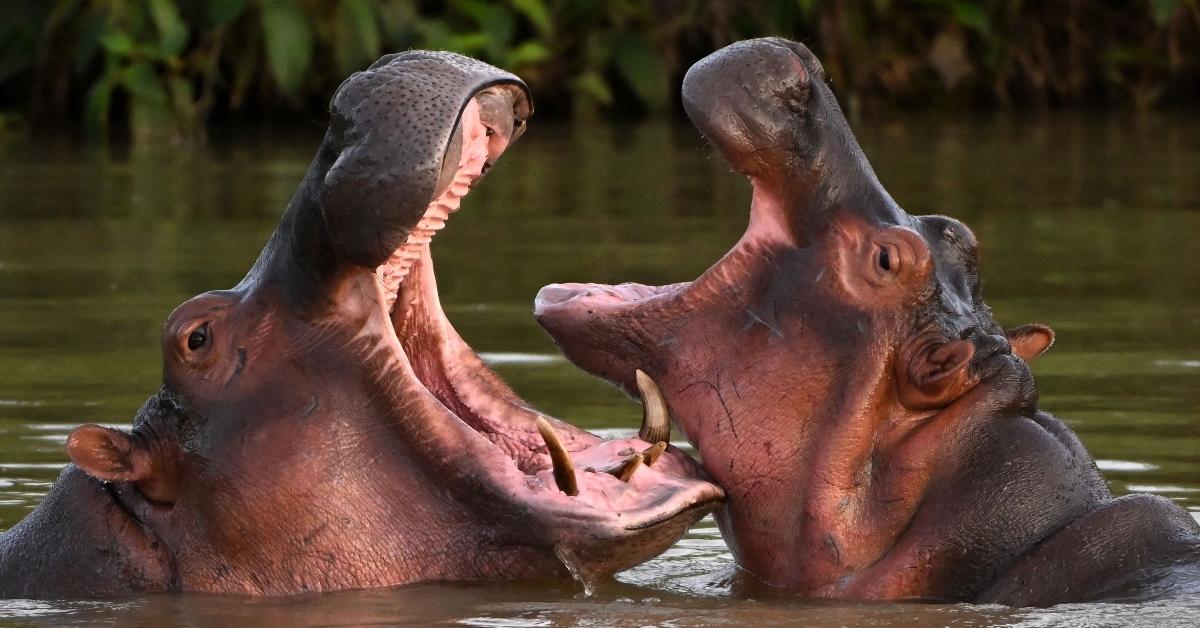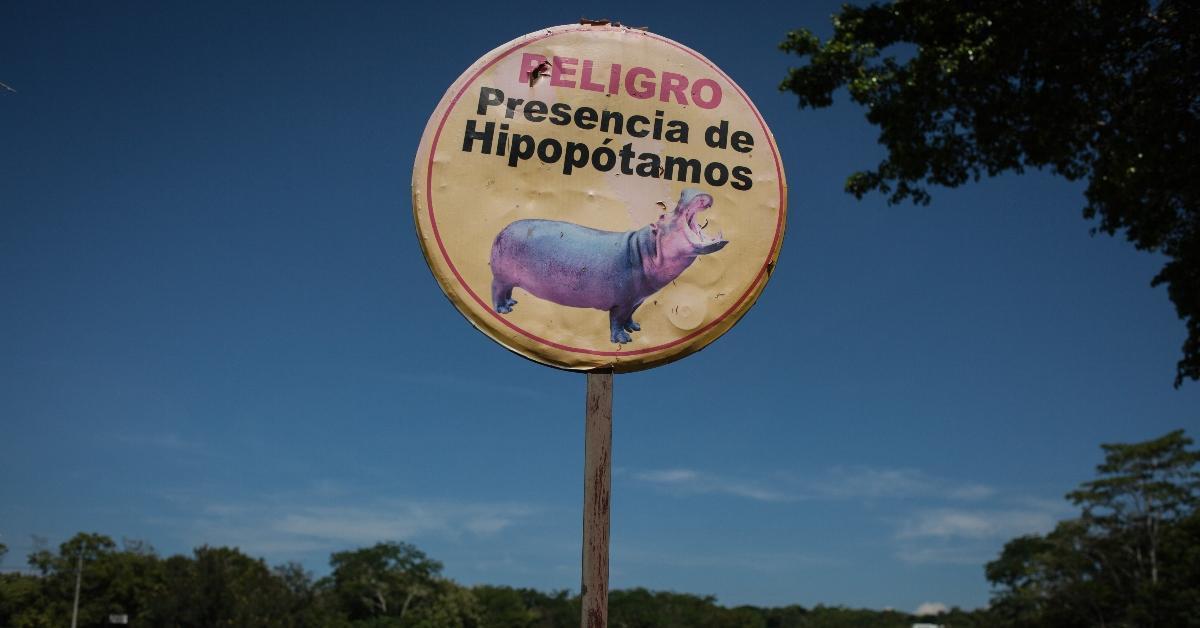Colombia Begins Sterilizing Pablo Escobar's Hippos After They Are Declared Invasive
Updated Nov. 15 2023, 10:05 a.m. ET

The Gist:
- Drug lord Pablo Escobar brought four hippos to Colombia illegally for his private zoo.
- The hippo population has grown to 169 animals.
- Officials initially considered euthanizing or relocating the hippos, but have begun sterilizing them instead.
Hippos aren’t native to Colombia, but there are about 169 of them roaming around the country’s rivers, thanks to Pablo Escobar, the Associated Press reports. The late drug kingpin illegally brought four hippos to the country for his private zoo, Hacienda Nápoles, during the 1980s. After his death, the hippos were released into the countryside and settled in places such as the Magdalena River basin.
The hippo population in Columbia has exploded since Escobar died in 1993, and authorities estimate their numbers could grow to 1,000 by 2035, AP reports. Officials in Colombia initially considered a plan to cull Escobar’s invasive hippos if other options for controlling the population wouldn't work, but here's what you need to know about how the situation has progressed.

Colombia declared Pablo Escobar's hippos an invasive species.
The Colombian government declared the hippos an exotic invasive species earlier in 2023, but the problem has been well documented long before then. According to National Geographic, animals become invasive when introduced into an area they don’t naturally exist in and threaten the native ecosystem.
Escobar’s hippos primarily pose ecological problems in the rivers where they’ve settled. The concern is that hippo feces could change the river ecosystem, possibly threatening the habitat of other animals that live in and near the rivers, like manatees and capybaras, reports the AP.
Not to mention, hippos are a significant danger to humans. Hippos are one of the world’s most dangerous animals, killing about 500 people a year, according to the BBC. While the Colombian hippos have killed no one, there have been some close calls, including an incident where some hippos showed up in a schoolyard.
"While they may look very calm, at any moment, given their highly unpredictable behavior, they can attack, as has happened before," David Echeverri, a local environmental official, told CBS News.

Colombia began sterilizing the invasive hippos as opposed to euthanizing them.
The initial options considered to deal with the hippos included surgical sterilization, transfer to other countries, or euthanasia. Euthanasia will only be used as a last resort, clarified Colombian Environment Minister Susana Muhamad, per the AP.
Colombia’s current hippo control plan includes sterilizing 40 hippos per year, Muhamad further explained to the outlet. However, sterilization is hugely expensive at roughly $9,800 per animal, and dangerous for both the hippos and the vets performing the procedure.
As of Nov. 14, 2023, two male hippos and one female hippo have already undergone the sterilization process, as per NBC News. Sterilization is also a long process, because even capturing the territorial animals to perform the procedure is difficult.
India, Mexico, and the Philippines are some of the countries to which Colombian officials have considered transferring the hippos. “We are working on the protocol for the export of the animals,” Muhamad told the AP. “We are not going to export a single animal if there is no authorization from the environmental authority of the other country.”
This article, originally published on Nov. 3, 2023, has been updated.